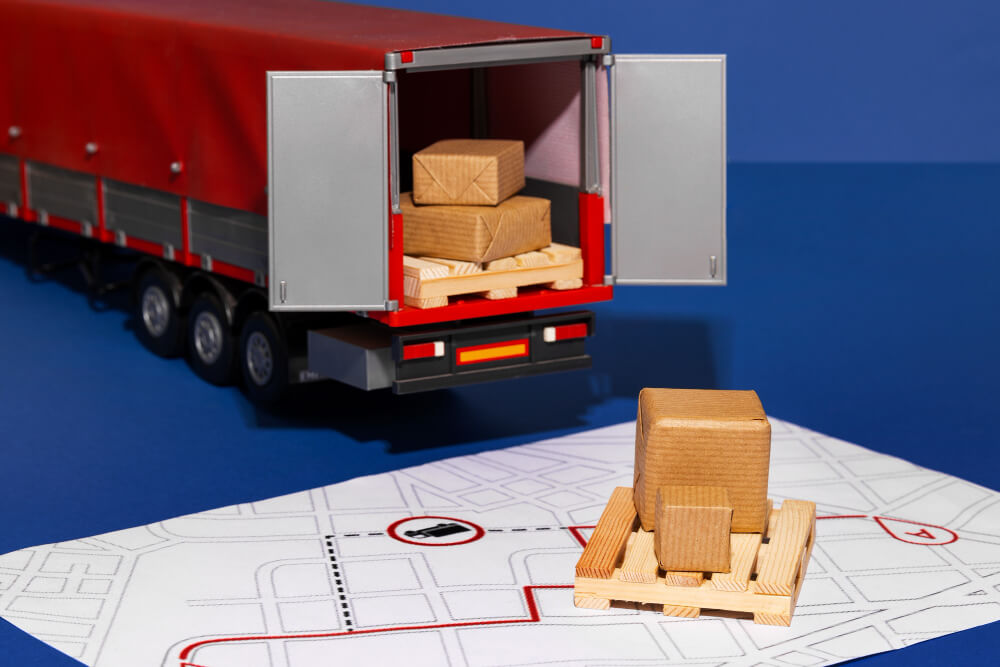Transportation Challenges in the Manufacturing Industry

The transportation of goods is a critical aspect of the manufacturing industry, but it comes with a host of challenges that can significantly impact operations. From managing logistics to ensuring timely deliveries, manufacturing companies must navigate a complex landscape to keep their supply chains running smoothly. This blog explores the key transportation challenges faced by manufacturers and how they can address these issues to maintain efficiency and profitability.
1. Timely Delivery of Raw Materials and Finished Goods
One of the most significant challenges for manufacturing companies is ensuring the timely delivery of both raw materials and finished products. Delays in receiving raw materials can halt production lines, leading to costly downtime and missed deadlines. On the other hand, late deliveries of finished goods can result in dissatisfied customers, lost sales, and damage to the company’s reputation.
To mitigate these risks, manufacturers must work closely with reliable transportation providers who can guarantee on-time deliveries. Implementing advanced logistics software that tracks shipments in real-time can also help companies anticipate delays and make adjustments as needed.
2. Navigating Complex Logistics
Manufacturing companies often deal with complex logistics involving multiple shipments, diverse suppliers, and varying destinations. Coordinating these elements requires meticulous planning and efficient communication. A breakdown in any part of the logistics chain can lead to delays, increased costs, and operational inefficiencies.
To manage these complexities, manufacturers should invest in comprehensive logistics management systems that offer visibility into every stage of the supply chain. These systems can automate scheduling, track inventory levels, and optimize shipping routes, reducing the likelihood of errors and improving overall efficiency.
3. High Transportation Costs
The cost of transportation is a major concern for manufacturing companies, especially when dealing with large or heavy items. Fuel prices, tolls, maintenance, and labor costs all contribute to the overall expense of moving goods from one place to another. Additionally, manufacturers may face extra costs due to delays, damaged goods, or inefficient routing.
To control transportation costs, manufacturers should regularly review their logistics processes and look for opportunities to streamline operations. This could involve negotiating better rates with carriers, consolidating shipments to reduce the number of trips, or investing in more fuel-efficient vehicles.
4. Regulatory Compliance
Transportation in the manufacturing sector is heavily regulated, with strict rules governing the handling, labeling, and movement of goods—especially hazardous materials. Compliance with these regulations is not only essential for avoiding legal penalties but also for ensuring the safety of both workers and the public.
Manufacturing companies must stay up-to-date with changing regulations and ensure that all transportation practices meet the required standards. This may involve regular training for employees, thorough documentation, and working with transportation providers who are knowledgeable about the latest regulations.
5. Dealing with Unforeseen Disruptions
Unforeseen disruptions, such as extreme weather, natural disasters, or equipment failures, can wreak havoc on a manufacturing company’s transportation operations. These disruptions can cause delays, increase costs, and lead to significant operational challenges.
To build resilience against such disruptions, manufacturers should develop contingency plans that outline alternative routes, backup suppliers, and emergency response strategies. Having insurance coverage for transportation-related risks can also provide financial protection in the event of a major disruption.
Conclusion
Transportation challenges are a significant concern for manufacturing companies, affecting everything from production schedules to customer satisfaction. By addressing these challenges through strategic planning, investment in technology, and partnerships with reliable transportation providers, manufacturers can ensure the smooth and efficient movement of goods, ultimately supporting their overall business goals.


